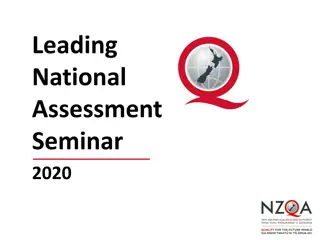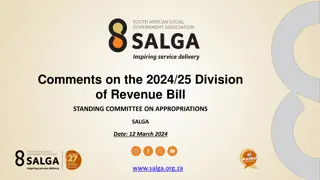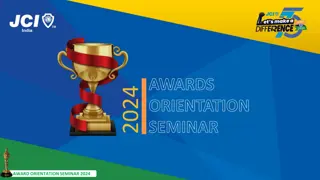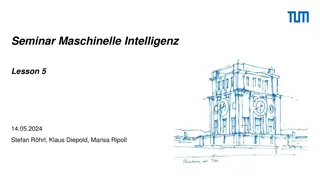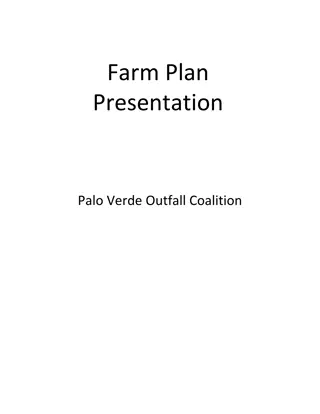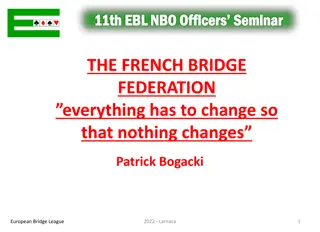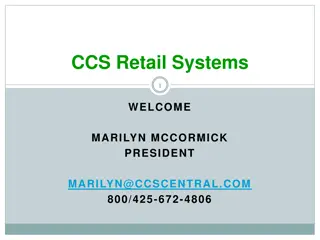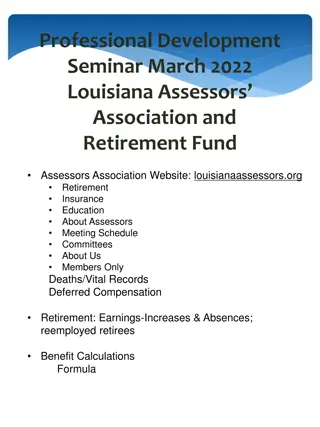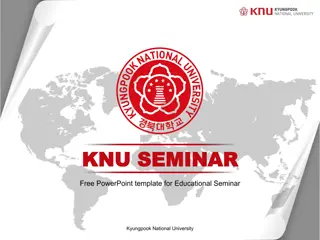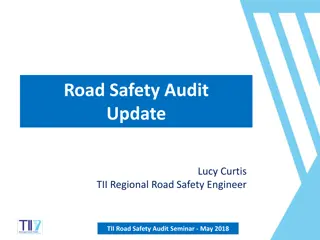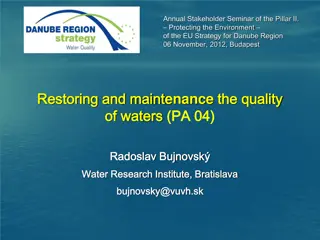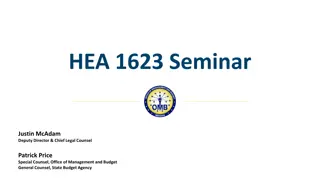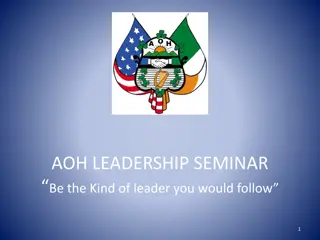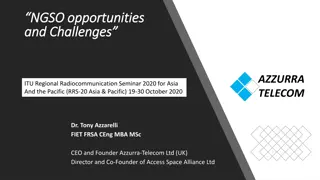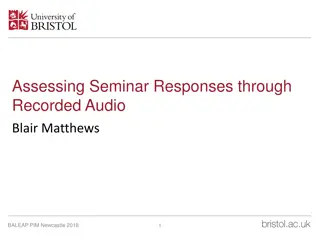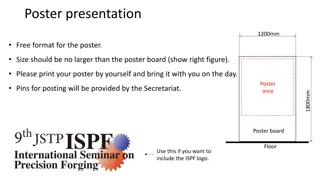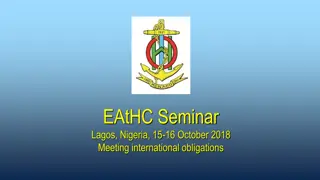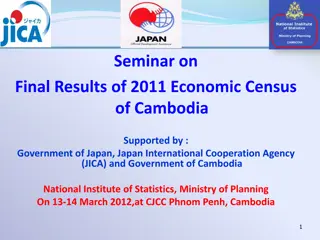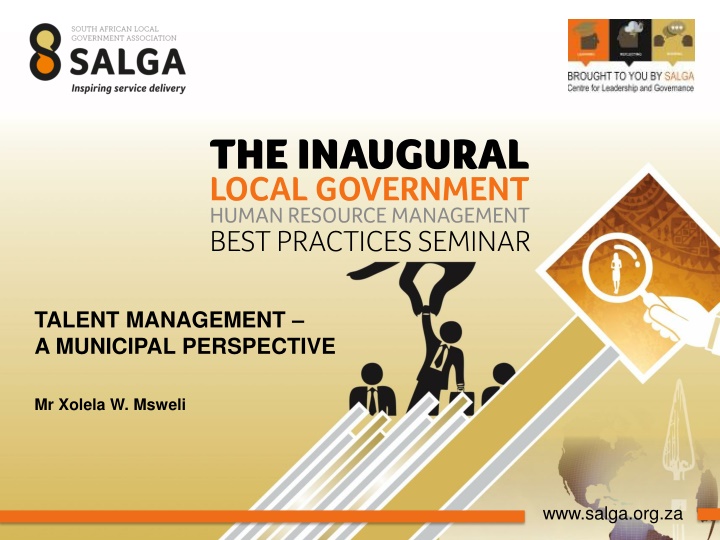
Rural Municipalities Talent Management and Staff Retention Insights
Explore talent management and staff retention challenges in rural municipalities, including characteristics like high poverty levels, infrastructural backlogs, and staff turnover issues. Discover the opportunities and policy considerations for improving retention in these areas.
Download Presentation

Please find below an Image/Link to download the presentation.
The content on the website is provided AS IS for your information and personal use only. It may not be sold, licensed, or shared on other websites without obtaining consent from the author. If you encounter any issues during the download, it is possible that the publisher has removed the file from their server.
You are allowed to download the files provided on this website for personal or commercial use, subject to the condition that they are used lawfully. All files are the property of their respective owners.
The content on the website is provided AS IS for your information and personal use only. It may not be sold, licensed, or shared on other websites without obtaining consent from the author.
E N D
Presentation Transcript
TALENT MANAGEMENT A MUNICIPAL PERSPECTIVE Mr Xolela W. Msweli www.salga.org.za
TALENT MANAGEMENT AND STAFF RETENTION IN RURAL MUNICIPALITIES www.salga.org.za
highest issue on the The agenda of the world today is the question of people and their well-being. (Perfect Hullets Sugar). Malimela; www.salga.org.za
There is nothing so difficult to conduct and perilous to take at hand, than to introduce a new things. (Jack General Electric US) nothing so order of Clarke CEO; www.salga.org.za
In this presentation the following will be covered: 1.Typical characteristics Municipality in South Africa. 2. Taking a short walk on staff retention 3.Challenges of Staff retention. 4.Opportunities that could be exploited. 5.Policy considerations. of a Rural www.salga.org.za
CHARACTERISTICS OF RURAL MUNICIPALITIES. High levels of poverty due to unemployment , lack of economic activity, over- reliance of social grants, lack of infrastructure. Poor synchronization/integration of government programmes with the objective felt needs of rural communities including the myth that rural communities are focussing on agricultural activities this is far from the reality on the ground. Exodus of professionals to bigger cities to take up rewarding business and employment opportunities. The generally monotonous social environment in rural areas, lack of social activities, entertainment accommodation. and lack of descent www.salga.org.za
CHARACTERISTICS OF RURAL MUNICIPALITIES. Frustrating infrastructural backlogs occasioned by centuries of the legacy of apartheid causing unrealistic demands from communities for expedient service delivery. Lack of Socio-Economic integration of small towns and rural villages. Very low revenue base coupled with inefficient/incoherent updating of annual indigent data- base. www.salga.org.za
SHORT WALK ON STAFF RETENTION Over the years, Rural Municipalities have been experiencing high levels staff turnover particularly from qualified and competent individuals. Although Municipalities would normally conduct exit interviews, it remains uncertain as to whether the data gathered through these interviews is an accurate reflection of the reasons for the high staff turnover. www.salga.org.za
SHORT WALK ON STAFF RETENTION There is a need to conduct research amongst high and medium performing Municipalities to determine the factors that lead to their decision to leave these Municipalities. information could enable Rural Municipalities to take appropriate retention measures and strategies. employees in Rural Such Rural corrective steps or strategies to retain, and to attract talented employees. Municipalities have a dire need to take www.salga.org.za
SHORT WALK ON STAFF RETENTION Effective Talent Management aims not only to attract and retain talented employees but to also ensure that leaders are able to harness their talents and abilities in an energized way whilst creating opportunities for advancement, additional value add. development and An effective Talent Management framework should therefore shift the curve of the proportion of people in an organisation who are engaged and perform at a high level. www.salga.org.za
SHORT WALK ON STAFF RETENTION Two types of employee commitment are apparent:- Rational commitment of the mind: This forms when employees believe that they will personally developmentally or professionally from their teams, managers or organizations. benefit financially, This forms when Emotional commitment of the heart: employees believe in, value and enjoy their day to day work, teams, managers or organizations. www.salga.org.za
MODEL OF ENGAGEMENT www.salga.org.za
CHALLENGES OF STAFF RETENTION Lack Opportunities (the room is too small for upward mobility) of Career Growth and Advancement There is little effort to enable employees to plan and understand the logical progression of jobs within their profession throughout their working life in a Rural Municipality. Poor recognition of efforts made by employees through development opportunities or promotion. www.salga.org.za
CHALLENGES OF STAFF RETENTION When employees have reached a ceiling they have no option but to move on (this also relates to their career anchors). No room for growth and branching out beyond one s role or enhancing one s ability to be multi-skilled and/or increase responsibility within a Rural Municipality. www.salga.org.za
CHALLENGES OF STAFF RETENTION Pay, compensation and reward are the most important component of compensation in driving effort and there is a clear link between pay and performance. Note that compensation and benefits are a primary lever for retention and not performance. municipalities are rated at low categories by SALGBC. Most rural Professionals use Rural Municipalities as a waiting station to acquire experience and then move on to affluent cities. www.salga.org.za
CHALLENGES OF STAFF RETENTION Incoherent management/leadership philosophy. This is critical for staff retention. More focus should be on leadership skills, e.g. establishing vision and goals, communicating the vision and goals, and guiding others to accomplish them. Scholars also assert that leadership must be more facilitative, participative and empowering in how visions and goals are established and carried out. www.salga.org.za
. The employees immediate manager and his/her behaviour is one of the top levers of engagement. The manager is the most important enabler of employees commitment to their jobs, teams and the organization. www.salga.org.za
CHALLENGES OF STAFF RETENTION There is always a sense of feeling micromanaged (clock watching, looking over your shoulder) and as a result there is no trust in staff. Directors and Senior Managers need to re- emphasise the open-door philosophy so that staff feel comfortable to address issues with an immediate manager at higher levels. Manager vs Leader there is a general lack in people management skills and the ability to lead people. Supervisors and managers must be developed to be leaders. www.salga.org.za
OPPORTUNITIES Business Model changes, with resultant changes in culture & structure which are not aligned to individual needs and values Culture refers to the way we do things around us culture is the collection of overt rules, values and principles that guide organizational behaviour that has been strongly influenced by history, custom and practice. www.salga.org.za
Structure refers to the arrangement of functions and people into specific areas and levels of responsibility, decision-making authority and relationships. Structure assures effective implementation of an organisation s mission and strategy. www.salga.org.za
OPPORTUNITIES Becoming sensitized to the needs of the employees and therefore identify opportunities for growth and advancements. Providing employees with different challenges so boredom does not set in. Working on producing career growth. Encouraging a culture that promotes trust. www.salga.org.za
Providing better management, support and trust by managers. Improving remuneration and benefits. Ensuring that employees are treated in a fair and equitable manner. Ensuring that clients are treated well and not made to suffer. Walking the talk in relation to transformation. www.salga.org.za
OPPORTUNITIES Financial rewards/Incentives for good performance Match new offer/Counter offering Remuneration/Rural Allowance Corporate culture should be good and encourage people to stay on. Training and development should open doors to prosper within a Rural Municipality. Corporate culture should accompanied by professional supervisors. be conducive treatment and from www.salga.org.za
POLICY CONSIDERATIONS 1. Development of a Talent Retention Strategy for implementation across Rural Municipalities. Development of a Talent Management Map and framework Continued employee engagement Creation of an Employee Value Proposition Development of Special Incentives Policy by SALGBC for Rural Professionals and taking into account the special circumstances in which they are operating. Building the bigfour cultural traits communication, integrity, innovation and flexibility which are the four most important traits of organisational culture for driving employee effort. 2. 3. 4. 5. 6. www.salga.org.za
7. 8. Building the internal Employment Brand through communication. Crafting a communication process that would provide continuous feedback about elements of the Rural Municipality Talent Strategy. 9. The benefits of what Rural Municipality provides, normal remuneration and performance bonuses must be communicated more widely during:- Contracting, induction Performance reviews Management meetings Departmental meetings www.salga.org.za
10. Mentoring and Coaching System. 11. Design and implement a meaningful mentoring and coaching system to enhance the transfer of skills on the job and integrate young talent quicker into the organization's culture. 12. Develop Talent Management Mindset by equipping leaders and managers with basic competencies that would allow them to: Coach for results - the ability to effectively coach for success and for improvement is critical to getting work group results. www.salga.org.za
Drive performance - Setting performance expectations and holding people accountable are critical for getting results. Inspire loyalty and trust - good leaders create an environment where employees can maximize their talents and perform at or above expectations. Influence through personal power - leaders and managers need to get things done without using position power. Manage differences in people - leaders and managers should understand the differences in people and core human needs and what needs to be done to enhance rational commitment and emotional commitment within employees. www.salga.org.za
CONCLUSION Retaining valued employees and the intellectual property will ensure that Rural Municipalities engage talent to ensure the continual transfer and encoding of acquired knowledge, skills, experience and expertise. successfully www.salga.org.za
The war for talent is definitely a key challenge, thus rural municipalities need to clearly understand that having people with the right mixture of commercial, technical and management skills is a crucial factor effectiveness and success. Thus, Rural Municipality leadership needs to ensure that they have high commitment levels towards their employees in order to retain them thus maximizing the return both for the employer and the employee. for organizational www.salga.org.za
Quote HE WAS AN HONEST MAN, HE WANTED TO SEE AN ORGANIZATION IN JAPAN OR ANYWHERE ELSE IN THE WORLD, WITH INDIVIDUALS WHO COULD MAINTAIN, RETAIN AND SUSTAIN THEIR OWN VITALITY AND UTILIZE THE FULL RESOURCES OF ITS PEOPLE . (EXECUTIVE DIRECTOR, HONDA INSTITUTE, TOKYO). www.salga.org.za
THANK YOU www.salga.org.za

